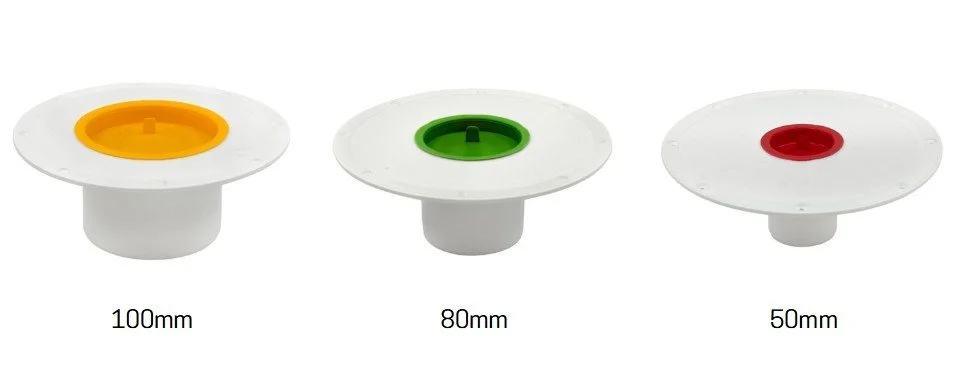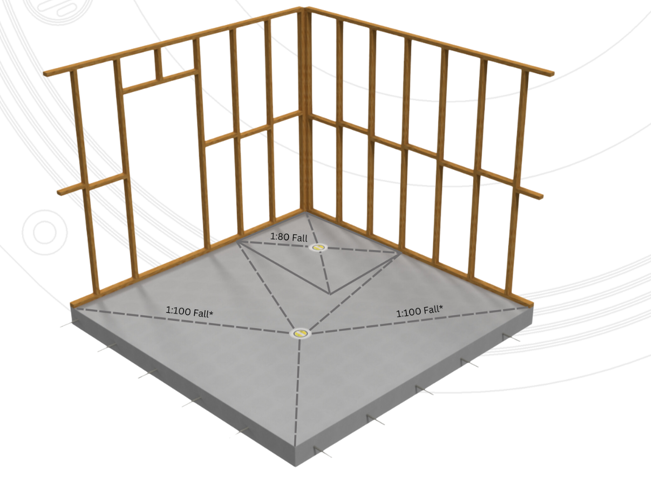Retro-Fit Puddle Flange with Test Plug
The Retro-Fit Puddle Flange is a fitting that transitions the waterproofing membrane to the shower drain. The Wondercap Company did not create the puddle flange, it only made it better.
Go green, go hygiene, and go anti-bacterial with the Wondercap Retro-Fit Puddle Flange!
-
Retro-Fit Puddle Flange: 100mm
Code: WC100RPFTPRetro-Fit Puddle Flange: 80mm
Code: WC80RPFTPRetro-Fit Puddle Flange: 50mm
Code: WC50RPFTP -
Installed after the concrete / fibro cement flooring / timber floor has been installed.
Minimum tiling bedding for Wet Areas.
Renovations and remodelling of bathrooms.
-
Step 1:
Prepare the floors by checking that the existing floor is smooth around the risers and has no high points to impede the puddle flange from sitting flush with the floor. Cut the pipe riser down at least 3mm below the finished floor. Rebate the 3mm for the puddle flange. Clean the area for the puddle flange thoroughly prior to gluing. Solvent clean and glue the puddle flange into position – always be aware that the internal dropper of the puddle flange could be very tight to install so be prepared to place additional weight when pushing into position.
Step 2:
Mark out a 200mm diameter area from the center of the riser for the 3mm rebate so the puddle flange sits flush with the floor. Screw the puddle flange down into position - the 8-holepuddle flange will firmly secure to the concrete floor.
-
The high-quality ABS puddle flange features 8 secure fixing points, ensuring a stable attachment to any substrate flooring.
It is available with a base and cap "grate adaptor" to seamlessly transition between the floor and shower grates and the puddle flange.
Additionally, a lightweight push-in test plug is available to prevent construction debris from entering the open drain.
The test plug simplifies the process of water testing the waterproofing system.
The NCC Waterproofing requirements are challenging. Wondercap can help you through these challenges to comply with the NCC requirements for the Australian Standards Waterproofing of Domestic Wet Areas. Wondercap can provide the products, procedures and installation processes to your construction team to meet these NCC regulations.



